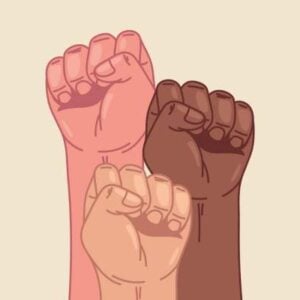Vietnam has attracted increasing attention from governments worldwide due to its rapid economic growth and strategic position in Asia. The country has secured comprehensive strategic partnerships with major powers, including the U.S., EU, Japan, Australia, and several ASEAN nations, positioning itself as a key trade partner and a potential counterbalance to Chinese influence. These partnerships aim to deepen trade, investment, and security ties, reflecting the global interest in Vietnam’s expanding economic clout.
Despite its economic success, Vietnam is one of the most repressive countries in Southeast Asia. The government has intensified its crackdown on dissent, targeting bloggers, journalists, human rights defenders, and ordinary citizens who criticize authorities online. Recent high-profile cases, such as that of Dao Ba Cuong, illustrate the risks faced by those speaking out. Dao, whose son died in police custody, was sentenced to prison for protesting and documenting his grievances on social media, highlighting the severe restrictions on freedom of expression under the Penal Code’s article 331.
Since 2018, prosecutions under article 331 have surged, reflecting a broader trend of authorities viewing concerns about human rights, corruption, and the environment as threats to Communist Party control. Individuals from ethnic minorities, journalists, activists, and even former police officers have faced imprisonment for raising issues publicly, demonstrating how the government equates dissent with existential risk.
Foreign governments and corporations engaging with Vietnam are urged to address these human rights abuses directly, prioritizing cases involving lengthy prison terms or urgent medical needs. Experts warn that economic growth without rule-of-law reforms risks undermining citizens’ economic, social, and cultural rights. Civil society, including groups critical of the government, plays a crucial role in tackling issues such as police misconduct, environmental hazards, and corruption, and should be supported rather than suppressed.
Labor rights are another area of concern. Despite Vietnam’s relatively low-cost and compliant workforce, independent trade unions remain restricted. Foreign partners, particularly the EU, should press Vietnam to honor commitments to ratify international labor conventions, ensuring safe working conditions, fair wages, and worker representation. Sustainable economic growth requires not only productivity but also respect for human rights and social protections.
Although some observers suggest most Vietnamese citizens prioritize economic growth over civil liberties, the reality is that speaking out often leads to imprisonment, creating a climate of fear. Cases like Dao’s, even after his release, show that demands for justice and human rights persist. Long-term strategic interests for Vietnam—and for foreign partners—lie in fostering tolerance for dissent and addressing the grievances of its citizens, ensuring that economic advancement is accompanied by genuine social and legal reforms.





